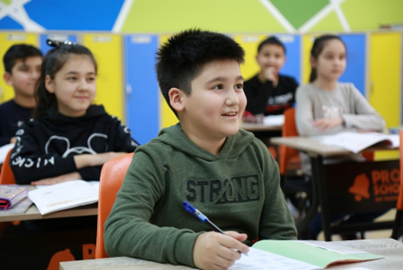Children in Romania and Covid-19
Children in Romania and Covid-19

While the COVID-19 epidemic is a devastating crisis for everyone, is it also seen as an opportunity to rethink policies and priorities, an opportunity to reimagine the future and build back better.
Children represent one quarter of the total number of asylum seekers in Romania, and around 60% of them are unaccompanied minors. For refugee children, schools are “the most important place of contact with members of local host communities, playing an important role in establishing relationships supportive of integration”. This is where teachers play an important part. Any teacher of refugee students has a clear priority to perform training “to meet refugee students’ social, emotional, and learning needs and to help refugee and national students understand each other and get along”.
In Romania, schools closed in March 2020 and learning moved online, as both schools and teachers were ill-prepared to provide quality inclusive education in the new online environment.
Currently, in Romania, there are legal standards and rules for the schooling of children and young people under international protection. The support services offered to these children are aimed at facilitating the learning of the Romanian language (they would benefit from a preparatory course for learning the Romanian language, emphasising that the course is intensive and free of charge during a school year). Beneficiaries of international protection have the right to have access to all forms of education, under the same conditions as Romanian citizens. In order to have access to education, children beneficiaries of international protection need to have the minimum age provided by law for all children: 3 to 6 for pre-school education and 6 for primary education. The law guarantees the right to education for both asylum seeking and refugee children, and they can be enrolled in school for a year as observers before they join the formal education programme. However, school enrolment is challenging for those without diplomas from the country of origin or with limited language skills. COVID-19 added new difficulties, as many children could not attend online classes because they lacked electronic devices, and in some cases children who were supposed to take part in classes as observers were not enrolled in the online platforms. Closure of schools and lack of social, educational and recreational activities has had a strong impact on children’s well-being and development:
